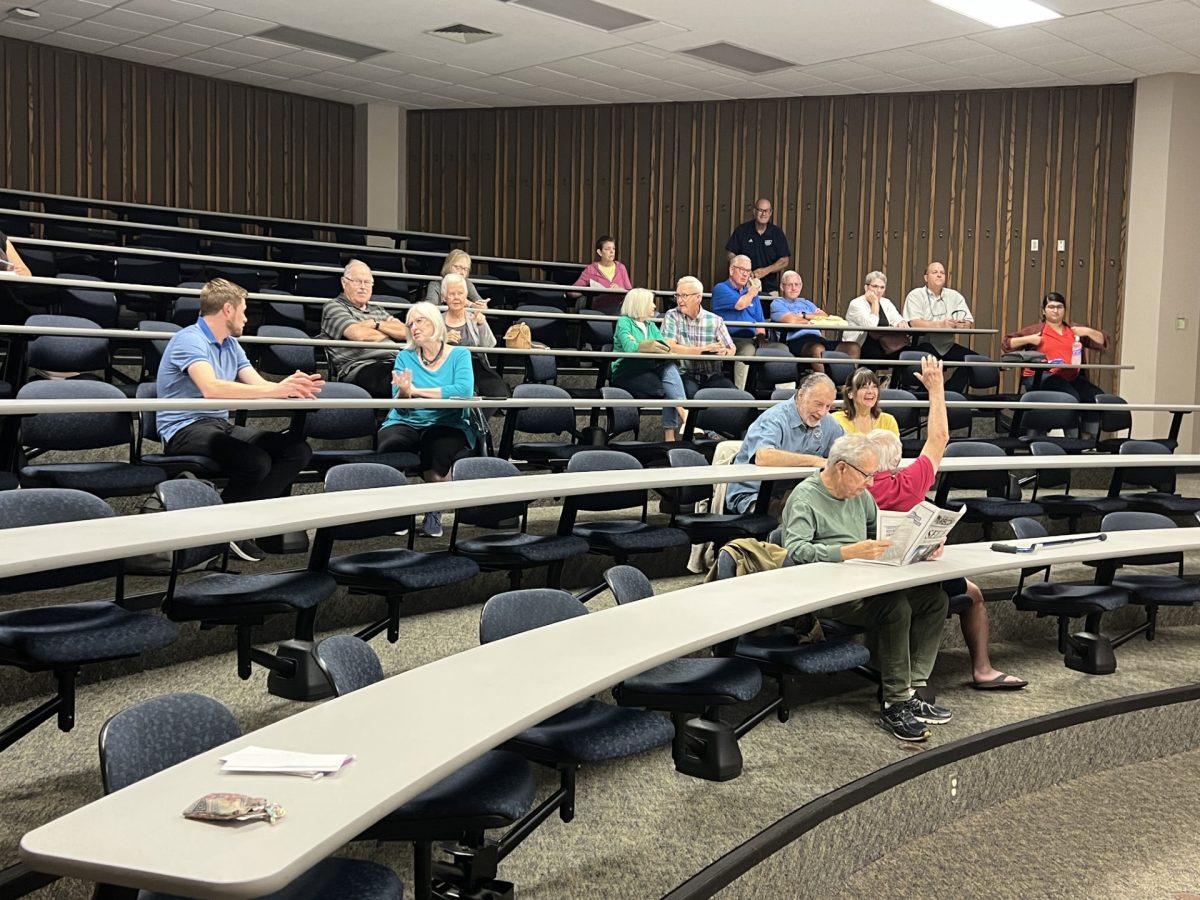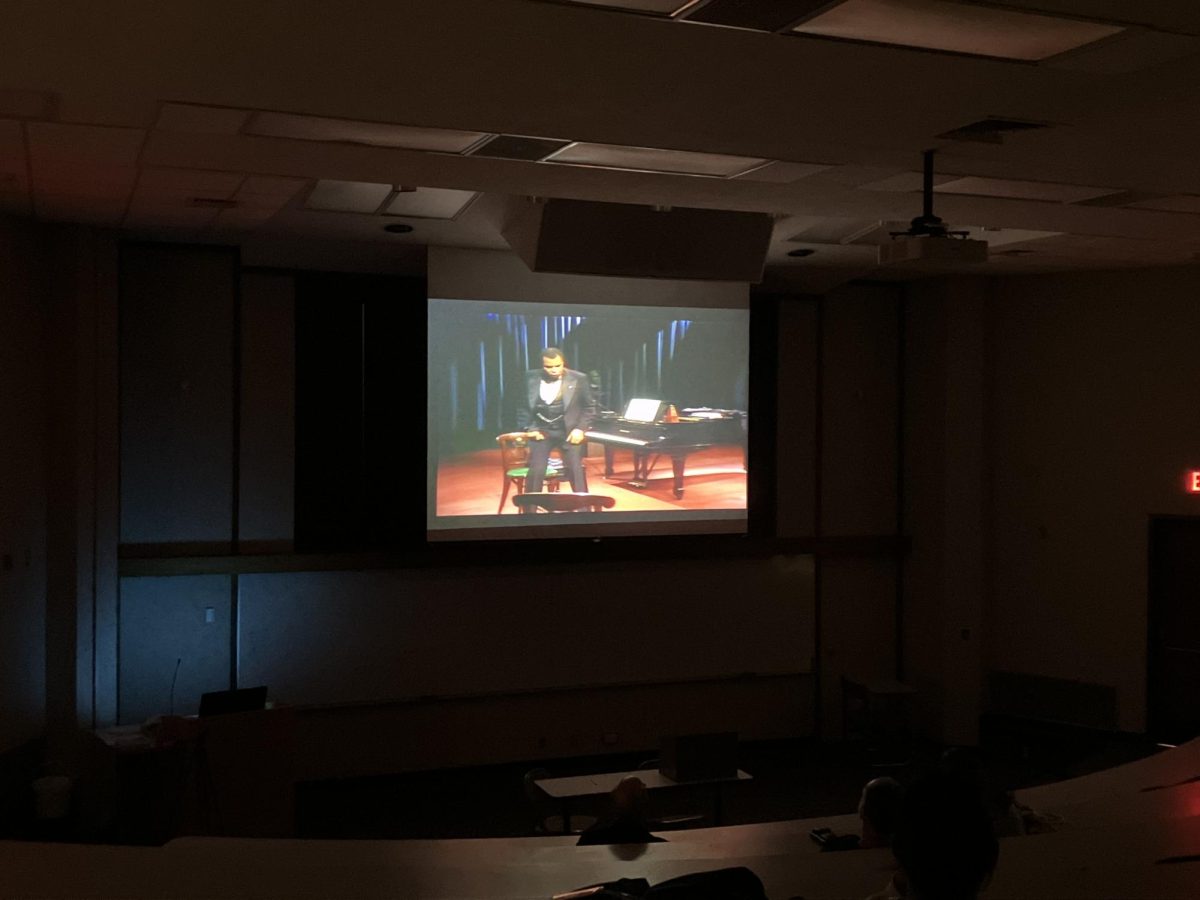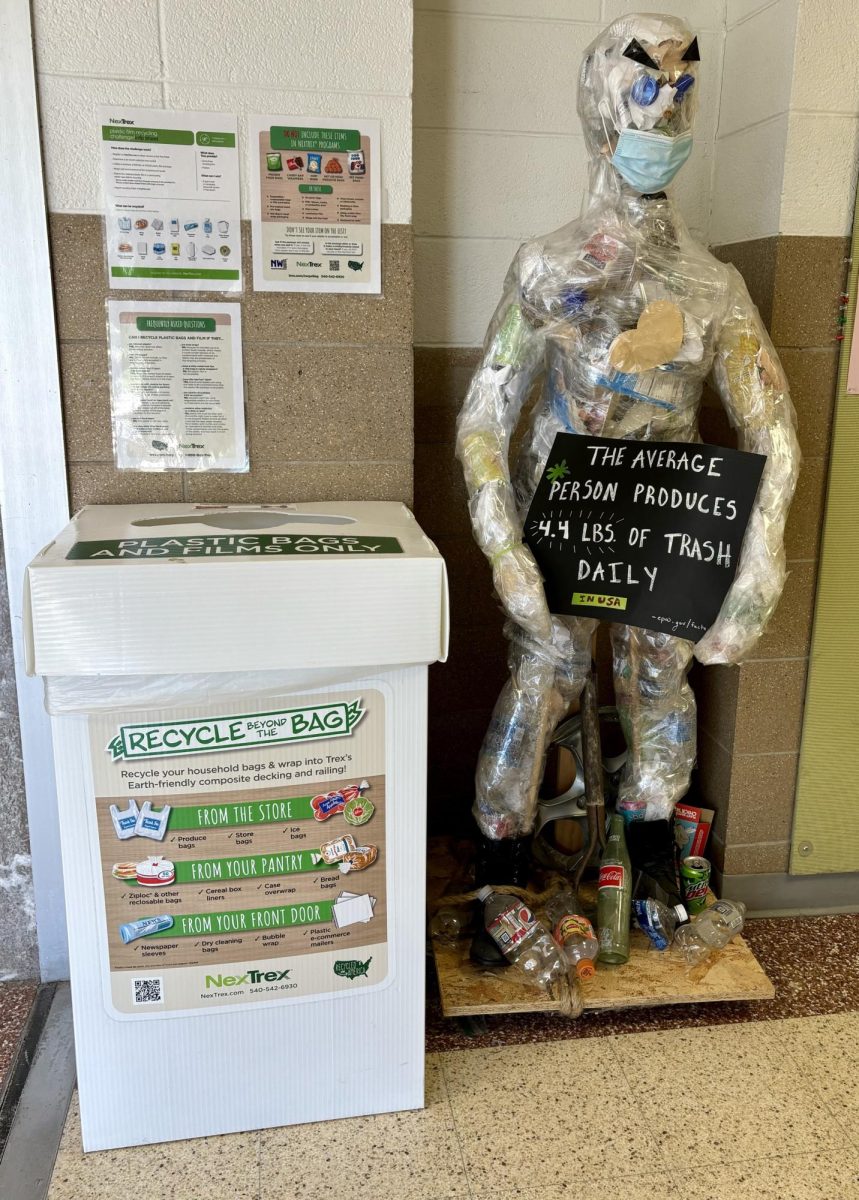Journalism and history collided Aug. 11, 2023 when the Marion County Record, a newspaper in Marion, Kansas, was raided by police officers.
The officers rushed into the newspaper office with a warrant and confiscated computers, servers, reporting material and cell phones from the staff. It was later found that cell phones were not listed on the warrant to retrieve.
They also raided the home of Eric Myer, editor and publisher of the Marion County Record, while his 98-year-old mother, Joan Meyer, was there. Police searched the home after a local restaurant owner accused the newspaper of illegally obtaining information about her, which was false.
As the officers went through the home, Joan pleaded with them to leave aware that the raid was a violation. Unfortunately, the day after Joan died.
Reporters and journalists across the U.S. began to call attention to this raid believing that the officers were in direct violation of the First Amendment which allows the freedom of the press.
Washburn faculty members came together, Sept. 12 to speak on the freedom of the press and this incident now added to journalism history.
During the discussion, Jeffrey Jackson, interim dean of the School of Law, explained that the Marion officers did not take the correct steps in raiding the newspaper.
With the Privacy Protection Act of 1980 and the Kansas Shield Law, in order for officers to legally obtain information from newspapers they must convince a court that there is no other way to retrieve the information. Even then, they must get a subpoena for a search.
Emily Bradbury, executive director of the Kansas Press Association, talked about how she found out about the raid. It was morning when she received a phone call from the association’s attorney, Max Kautsch.
“Anybody who knows anyone who usually texts or emails, when they call, you know it’s serious,” Bradbury said.
Bradbury stated that she was in shock after hearing about the raid. She immediately took charge of the situation spreading the news to other newspapers. The full probable cause affidavit at the time hadn’t been released, but Bradbury knew the raid was wrong.
“We knew that in Kansas with the Privacy Protection Act with the Kansas Shield Law, if there was something they wanted, they had a mechanism to do that,” Bradbury said. “They could’ve used subpoena power.”
Bradbury knew that she was standing in the middle of a situation that would be discussed for years.
“I knew that I had to take all of this information and try to figure out how we were going to best respond while also taking care of the local newspaper,” Bradbury said.
Tom Prasch, chair and professor of history, and Bruce Mactavish, assistant professor of history, gave insight into how the idea of free press began.
Starting with John Milton, a political writer in the 1600s, who wrote pamphlets discussing religio-political struggles. He disagreed with England’s Licensing Act which called for writings to be approved before publishing. Milton believed the act closed people off from a range of opinions and ideas they needed to access in order to evaluate.
Later that century, John Locke, an English philosopher and physician, backed Milton’s idea.
“I know not why man should not have liberty to print whatever he would speak; and to be answerable for the one, just as he is for the other, if he transgresses the law in either,” Locke said.
Mactavish followed with information on the freedom of the press in the 1800s. The press were punished for writing material that would induce slaves to run away or express different ideas on white supremacy.
In 1856, two Kansas newspapers, the Herald of Freedom and Kansas Free State were targeted for this.
Throughout history the press have been silenced to keep information from getting out to the public. Bradbury and her team believe that the Marion police were attempting to silence the Marion County Record. This was referred to as the “chilling effect” where individuals or groups are deterred from using free speech according to The Free Speech Center.
Sean Bird, senior associate dean of the Mabee Library, knew all too much about this effect as this is something that he’s seen with many librarians.
Librarians often refuse to add certain books to their libraries for fear of being ridiculed by readers or the community.
In this incident of the raid, Bradbury wanted to be sure that this would not happen to journalists. She wanted the public to be aware of why this was an important issue.
“[…] If you value transparency, and you value limited government overreach, this should matter to you. This is not a partisan issue,” Bradbury said.
Police have yet to take accountability, but Bradbury is determined to follow through.
Prasch added one thing people could do to help with this issue.
“Support your local journalist,” Prasch said.
To learn more about the raid of the Marion County Record newspaper, click here.
Edited: LeSha’ Davis and Larissa Morgan












